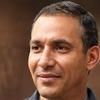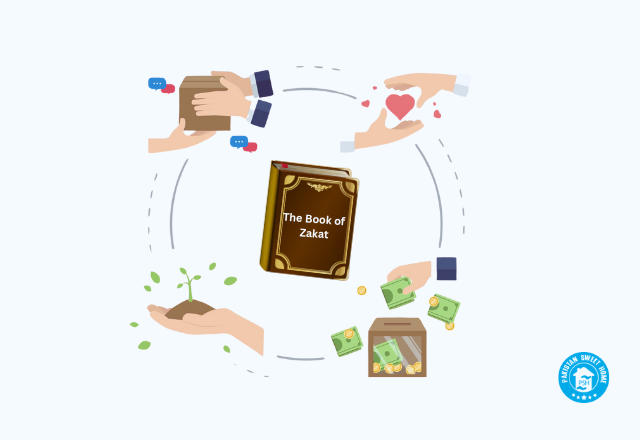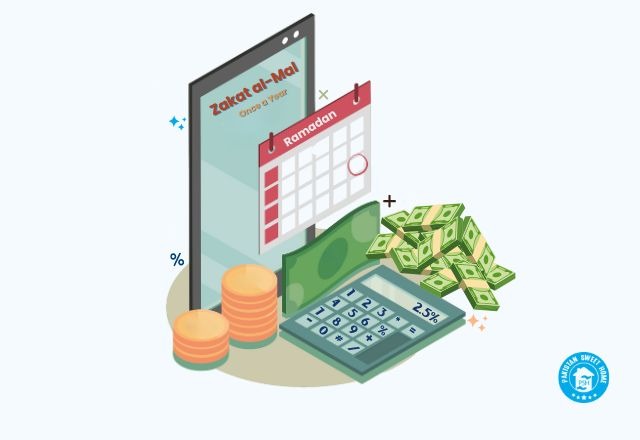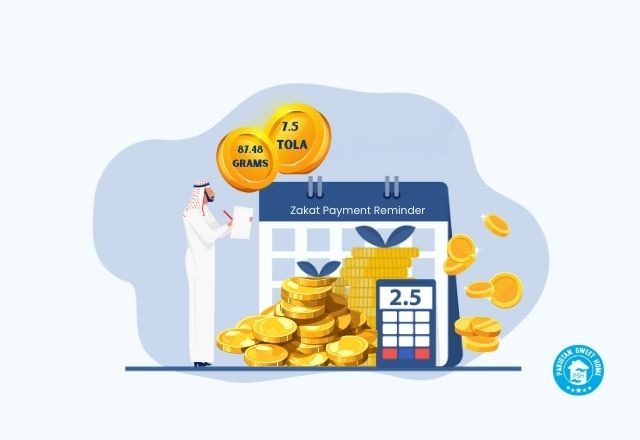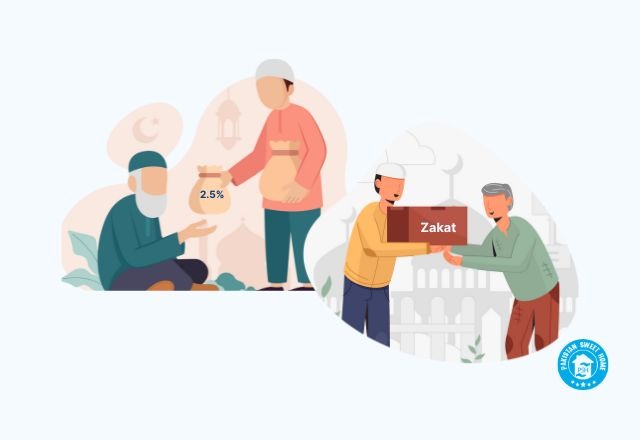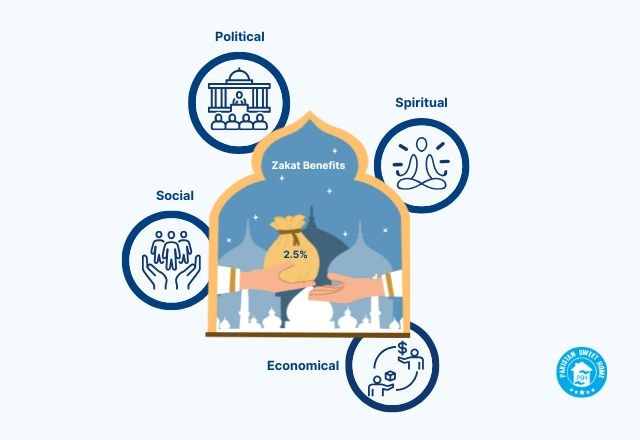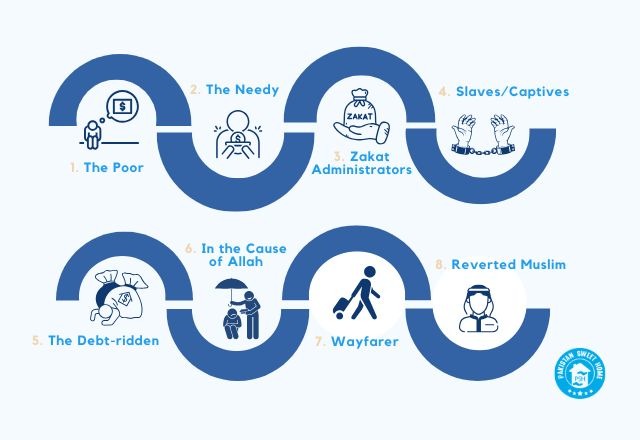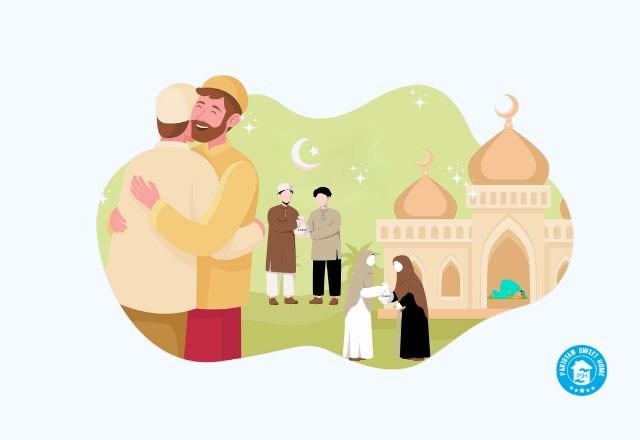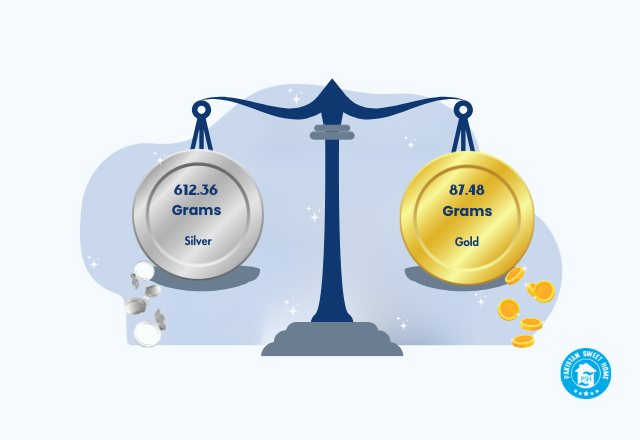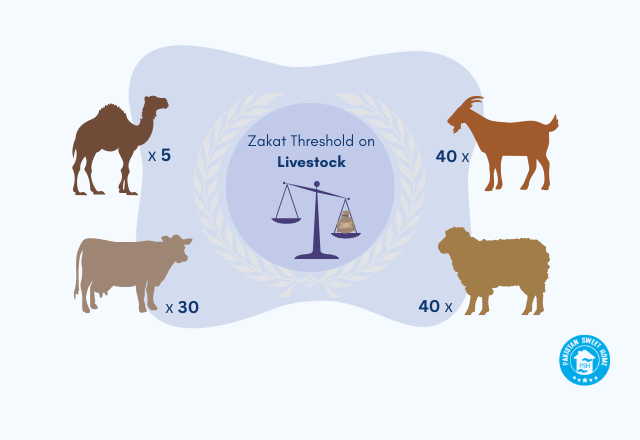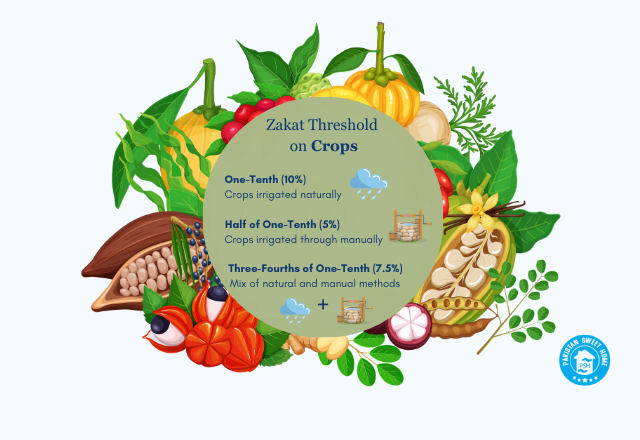In the teachings of Islam, Zakat is considered an important duty of giving charity to those in need.
Sometimes, we forget how important Zakat (obligatory charity) is because of our busy lives. But when we look at the hadith about Zakat, we realize its true value. These sacred sayings remind us of Zakat's significance and its life-changing impact.
Allah (SWT) mentions about Zakat in the Quran:
“And perform As-Salat (Iqamat-as-Salat), and give zakat and obey the Messenger (Muhammad PBUH) that you may receive mercy (from Allah).”
(Surah al-Noor: 56)
Let's explore more hadith about zakat.
Hadiths Explaining Zakat Obligations
Now, let's explore the hadiths that describe the obligations surrounding Zakat.
1. Fatimah bint Qais (R.A.) narrated that:
“She asked -or, the Prophet was asked - about Zakat, and he said: "Indeed there is a duty on the wealthy aside from Zakat." Then he recited this Ayah which is in Al-Baqarah: 'It is not Al-Birr (piety, righteousness) that you turn your faces.' (Al-Baqarah 2:177)”
(Jami at-Tirmidhi, Vol. 2, Book 2, Hadith 659)
2. Narrated by Jarir bin ‘Abdullah (R.A.),
“I gave the pledge of allegiance to the Prophet (PBUH) for offering prayer perfectly, giving Zakat, and giving good advice to every Muslim.”
(Sahih Bukhari, Vol: 02, Chapter 24, 484)
3. Narrated by Abu Burda (R.A.), from his father and grandfather, the Prophet (PBUH) said:
“Every Muslim has to give in charity.” The people asked, “O Allah’s Prophet! If someone has nothing to give, what will he do?”
He said, “He should work with his hands and benefit himself and also give in charity (from what he earns).” The people further asked, “If he cannot find even that?” He replied, “He should help the needy who appeal for help.” Then the people asked, “If he cannot do that?”
He replied, “Then he should perform good deeds and keep away from evil deeds, and this will be regarded as charitable deeds.”
(Sahih al-Bukhari, Vol: 02, Chapter 24, 524)
The above narrations shed light on:
- Duties for every Muslim
- Fulfilling religious duties: prayers, Zakat, guiding others
- Emphasize the importance of charitable deeds and righteous conduct
- Highlight the universal obligation of charity in Islam, regardless of wealth
Hadiths Classifying the Recipients of Zakat
Let’s specify the hadiths of those eligible for Zakat and shed light on its distribution and impact.
4. Narrated by Abu Huraira (R.A.) that the Prophet (PBUH) said,
“The best charity is that which a wealthy person practices. And start giving first to your dependents.”
(Sahih al-Bukhari, Vol: 02, Chapter 24, 507)
5. Narrated by Abu Huraira (R.A.) that Allah's Apostle (PBUH) said,
“A man said that he would give something in charity. He went out with his object of charity and unknowingly gave it to a thief. The next morning, the people said that he had given his object of charity to a thief. (On hearing that) he said, “O Allah! All the praises are for you. I will give alms again.”
And so he again went out with his alms and (unknowingly) gave it to an adulteress. The next morning, the people said that he had given his alms to an adulteress last night. The man said, “O Allah! All the praises are for you.
(I gave my alms) to an adulteress. I will give alms again.” So he went out with his arms again and (unknowingly) gave it to a rich person. (The people) next morning said that he had given his alms to a wealthy person. He said, “O Allah! All the praises are for you. (I had given alms) to a thief, to an adulteress, and to a wealthy man.”
Then someone came and said to him, “The alms which you gave to the thief might make him abstain from stealing, and that given to the adulteress might make her abstain from illegal sexual intercourse (adultery), and that given to the wealthy man might make him take a lesson from it and spend his wealth which Allah has given him, in Allah’s cause.”
(Sahih al-Bukhari, Vol: 02, Chapter 24, 502)
The discussed hadiths point to:
- The best charity is that given by a wealthy person, starting with one's dependents
- Even if charity is inadvertently given to someone undeserving, the intention matters, and giving should continue
- Charity has the potential to positively influence the behavior of recipients and encourage them toward righteousness
There are eight prescribed channels of Masarif-e-Zakat outlined in the Quran, representing various categories of recipients who are eligible to receive Zakat. One can fulfill their zakat duty well by understanding the hadiths on the distribution of zakat.
Hadiths about Zakatable Wealth
Let’s go through the rich teachings of the Prophet Muhammad (PBUH) about Zakatable Wealth.
6. As narrated by Ibn Abbas (R.A.),
“I am a witness that Allah’s Apostle offered the Eid prayer before delivering the sermon, and then he thought that the women would not be able to hear him (because of the distance), so he went to them along with Bilal, who was spreading his garment.
The Prophet (PBUH) advised and ordered them to give in charity. So, the women started giving their ornaments (for charity). (The sub-narrator Aiyub pointed towards his ears and neck, meaning that they gave ornaments from those places such as earrings and necklaces).”
(Sahih al-Bukhari, Vol: 02, Chapter 24, 529)
7. Narrated by Anas (R.A):
“Abu Bakr (R.A), wrote to me about the Zakat which Allah had ordered His Apostle to observe:
Whoever had to pay Jahda (a four-year-old she-camel) as Zakat from his herd of camels and did not have one, but had a Hiqqa (a three-year-old she-camel), that Hiqqa should be accepted from him along with two sheep, if available, or twenty Dirhams (one Dirham equals about 1/4 Saudi Riyal).
If someone had to pay Hiqqa as Zakat but did not have one and instead had a Jadha, the Jadha should be accepted from him, and the Zakat collector should repay him with either twenty Dirhams or two sheep.
Additionally, if someone had to pay Hiqqa but did not have one and instead had a Bint Labun (a two-year-old she-camel).
It should be accepted from him along with two sheep or twenty Dirhams. Whoever had to pay Bint Labun and had a Hiqqa, that Hiqqa should be accepted from him, and the Zakat collector should repay him twenty Dirhams or two sheep."
"Whoever had to pay Bint Labun and did not have one but had a Bint Makhad (one-year-old she-camel), that Bint Makhad should be accepted from him along with twenty Dirhams or two sheep.”
(Sahih al-Bukhari, Vol: 02, Chapter 24, 533)
The above hadiths highlight:
- Prophet Muhammad (PBUH) led by example, urging women to contribute to charity during Eid prayers. They responded to this charity (zakat al fitr) by donating ornaments.
- He (PBUH) guided us about Zakat on livestock, showcasing flexibility in fulfilling obligations based on available resources, such as different types of camels.
If you are feeling uncertain about which assets qualify for Zakat payment?
Don’t worry, as zakatable wealth is clearly mentioned in both the Quran and hadith. You can use our Zakat calculator for accuracy and get informed about the fixed Zakat percentage applicable to your wealth.
Hadiths About the Rewards of Giving Zakat
By understanding the hadith on the importance of zakat, we can know the reward behind the act of giving. Let’s examine how Zakat serves not only as a financial contribution but also as a means of spiritual growth and divine closeness.
A Profitable Investment
8. Narrated Abu Huraira (R.A.):
“Allah's Messenger (PBUH) said, "If one give in charity what equals one date-fruit from the honestly earned money and Allah accepts only the honestly earned money --
Allah takes it in His right (hand) and then enlarges its reward for that person (who has given it), as anyone of you brings up his baby horse, so much so that it becomes as big as a mountain.”
(Sahih Bukhari, Vol. 2, Book 24, Hadith 491)
Closeness to Allah (SWT)
9. Narrated Ibn Masud (R.A.):
“I heard the Prophet (PBUH) saying, "There is no envy except in two: a person whom Allah has given wealth, and he spends it in the right way, and a person whom Allah has given wisdom (i.e. religious knowledge) and he gives his decisions accordingly and teaches it to the others."
(Sahih al-Bukhari, Vol. 2, Book 24, Hadith 490)
10. Abu Hurairah (R.A.) narrated:
“The Prophet said: "When you pay the Zakat, you have fulfilled what is required of you."
(Jami at-Tirmidhi, Vol. 2, Book 2, Hadith 618)
The mentioned hadiths offer guidance on:
- Giving charity, even as small as a date fruit from honestly earned wealth, leads to immense rewards from Allah
- Envy is justified only in two cases:
- When Allah grants wealth spent in righteousness
- When He bestows wisdom used for righteous decisions and teachings
- Paying Zakat fulfills one's obligation, as stated by the Prophet Muhammad (PBUH)
Extend Your Hand in Generosity
Hadiths Illustrating the Impact of Zakat on Society
Zakat, as emphasized in various Hadiths, showcases its profound effects on society. These sacred narrations illuminate the benefits of zakat and how it leads to an increase in wealth. It also purifies souls by removing sins and upholds the rights of the poor.
Let's look into the following small hadiths on zakat. They carry deep meanings, helping us understand the transformative role of Zakat in shaping a just and compassionate society.
Increase in Wealth
11. Abu Huraira (R.A.) reported Allah's Messenger (PBUH) as saying:
“Charity does not decrease wealth, no one forgives another except that Allah increases his honor, and no one humbles himself for the sake of Allah except that Allah raises his status.”
(Sahih Muslim, Book 32, Hadith 6264)
12. Narrated by Abu Huraira (R.A.):
“Allah's Messenger (PBUH) said that Allah, the Most Blessed and High, said: O son of Adam, spend. I will spend it on you.
The right hand of Allah is full and overflowing and in nothing would diminish it, by overspending day and night.”
(Sahih al-Bukhari, Book 5, Hadith 2178)
Removal of Sins
13. Narrated Abu Huraira (R.A.):
“The Prophet (PBUH) said, "Every day two angels come down from Heaven, and one of them says, 'O Allah! Compensate every person who spends in Your Cause,' and the other (angel) says, 'O Allah! Destroy every miser.' "
(Sahih al-Bukhari, Vol. 2, Book 24, Hadith 522)
Right of Poor
14. Narrated Ibn Abbas (R.A.):
“The Prophet (PBUH) sent Mu`adh to Yemen and said, "Invite the people to testify that none has the right to be worshipped, but Allah and I am Allah's Messenger (PBUH),
And if they obey you to do so, then teach them that Allah has enjoined on them five prayers in every day and night (in twenty-four hours),
and if they obey you to do so, then teach them that Allah has made it obligatory for them to pay the Zakat from their property and it is to be taken from the wealthy among them and given to the poor."
(Sahih al-Bukhari, Vol. 2, Book 24, Hadith 478)
Reward of Zakat
15. Narrated Aisha (R.A.):
“Allah's Messenger (PBUH) said, "When a woman gives in charity some of the foodstuff (which she has in her house) without spoiling it,
she will receive the reward for what she has spent, and her husband will receive the reward because of his earning, and the storekeeper will also have a reward similar to it.
The reward of one will not decrease the reward of the others."
(Sahih al-Bukhari, Vol. 2, Book 24, Hadith 506)
The mentioned hadiths reveal:
- Giving charity does not decrease one's wealth; instead, it leads to an increase in honor and status
- Allah promises to compensate for every act of spending in His cause, while miserliness invites destruction
- Every day, two angels pray for those who spend in charity and invoke destruction upon the miserly
- Charity acts as a means to wipe away sins, akin to how water extinguishes fire
- The Prophet Muhammad (PBUH) sent Mu`adh to Yemen, instructing him to inform the people about the obligation of Zakat
- Zakat is to be taken from the wealthy and given to the poor, ensuring social justice and fulfilling the rights of the needy
- Women who give in charity from their household's food without spoiling it receive rewards, along with their husbands and the storekeepers
- The reward of one's charity does not diminish the rewards of others, highlighting the bountiful nature of charitable acts
Hadiths Highlighting the Consequences of Failing Zakat Duties
There are strict warnings in hadith for those who neglect to pay Zakat. The hadith on not giving Zakat emphasizes the consequences of failing to fulfill this essential duty in Islam, highlighting the importance of honoring this obligation.
16. Narrated by Abu Huraira (R.A.):
“The Prophet (PBUH) said, "(On the Day of Resurrection) camels will come to their owner in the best state of health they have ever had (in the world), and if he had not paid their Zakat (in the world) then they would tread him with their feet;
and similarly, sheep will come to their owner in the best state of health they have ever had in the world, and if he had not paid their Zakat, then they would tread him with their hooves and would butt him with their horns."
The Prophet (PBUH) added, "One of their rights is that they should be milked while water is kept in front of them." The Prophet (PBUH) added, "I do not want any of you to come to me on the Day of Resurrection, carrying over his neck a sheep that will be bleating. Such a person will (then) say,
'O Muhammad! (please intercede for me.) I will say to him. 'I can't help you, for I conveyed Allah's Message to you.' Similarly, I do not want any of you to come to me carrying over his neck a camel that will be grunting.
Such a person (then) will say, "O Muhammad! (please intercede for me)." I will say to him, "I can't help you because I conveyed Allah's message to you."
(Sahih al-Bukhari, Vol. 2, Book 24, Hadith 485)
17. Allah’s Messenger (PBUH) also said,
“Whoever is made wealthy by Allah and does not pay the Zakat of his wealth, then on the Day of Resurrection his wealth will be made like a bald-headed poisonous male snake with two black spots over the eyes.
The snake will encircle his neck and bite his cheeks and say, ‘I am your wealth, I am your treasure.’ ' Then the Prophet (PBUH) recited the holy verses:– ‘Let not those who withhold . . .’ (to the end of the verse). (3.180).”
(Sahih al-Bukhari, Vol. 2, Book 24, Hadith 486)
18. Abu Dharr (R.A.) narrated:
"I came to the Messenger of Allah while he was sitting in the shade of the Ka'bah." He said: "He saw me approaching, and he said: 'They are lost on the Day of Judgment! By the Lord of the Ka'bah!'" He said: "I said to myself: Woe is me! Perhaps something has been revealed about me!'"
He said: 'So I said: 'Who are they, and may my father and mother be ransomed for you.' So the Messenger of Allah said: 'They are those who have much, except for who says like this, and this, and this and motioned with his hand to his front, and this right, and to his left.' Then he said: 'By the One in Whose Hand is my soul!
No man will die, leaving a camel or a cow that he did not pay Zakat on, except that it will come on the Day of Judgment larger and fatter than it was; they will tread him under their hooves and butt him with their horns, all of them; such that when the last of them has had a turn, the first returns to him, until he is judged before the people.'"
(Jami at-Tirmidhi, Vol. 2, Book 2, Hadith 617)
The above teachings illustrate:
- On the Day of Resurrection, camels and sheep will come to their owners in their best states if Zakat has been paid. Otherwise, they will inflict punishment
- Neglecting Zakat will lead to one's wealth being transformed into a terrifying creature, symbolizing its punishment
- The Prophet (PBUH) warned that those who die without paying Zakat on their livestock will face severe consequences. Their animals will become larger and fatter on the Day of Judgment, inflicting punishment upon them
Hadith About Giving Zakat to Orphans
Following are the hadiths emphasizing the importance of supporting vulnerable members of society through charitable giving, particularly highlighting the special attention given to orphans in Zakat distribution.
19. It was narrated that Zainab (R.A.), the wife of Abdullah, said:
"The Messenger of Allah said to women: 'Give charity, even from women: 'Give charity, even from your jewelry. 'Abdullah was not a wealthy man and she said to him: 'Can I spend my charity on you and on my brother's children who are orphans?
Abdullah said: 'Ask the Messenger of Allah about that.' She said: So I went to the Messenger of Allah, and at his door I found a woman from among the Ansar who was also called Zainab, and she was asking about the same matter as I was.
Bilal came out to us, and we said to him: Go to the Messenger of Allah and ask him about that but do not tell him who we are. He went to the Messenger of Allah, and he said:' Who are they?'
He said: Zainab.' He said: 'Which Zainab?" He said: 'Zainab Al-Ansariyyah.' Abdullah and Zainab Al-Ansariyyah.' He said: 'Yes, they will have two rewards, the reward for upholding the ties of kinship and the reward for giving charity."'
(Sunan an-Nasa'i, Vol. 3, Book 23, Hadith 2584)
20. Awn bin Abi Jubaitah (R.A) narrated from his father:
"The charity collector of the Prophet came to us. So he took the charity from our rich to our poor. I was an orphan boy, so he came to me and gave me a young she-camel from it."
(Jami` at-Tirmidhi, Vol. 2, Book 2, Hadith 649)
21. Narrated Abu Sa`id Al-Khudri (R.A):
“Once the Prophet (PBUH) sat on a pulpit, and we sat around him. Then he said, "The things I am afraid of most for your sake (concerning what will befall you after me) are the pleasures and splendors of the world and its beauties which will be disclosed to you."
Somebody said, "O Allah's Messenger (PBUH)! Can the good bring forth evil?" The Prophet (PBUH) remained silent for a while. It was said to that person,
"What is wrong with you? You are talking to the Prophet (p.b.u.h) while he is not talking to you." Then, we noticed that he was being inspired divinely. Then the Prophet (PBUH) wiped off his sweat and said, "Where is the questioner?"
It seemed as if the Prophet (PBUH) liked his question. Then he said, "Good never brings forth evil. Indeed it is like what grows on the banks of a water stream, which either kills or makes the animals sick, except if an animal eats its fill, the Khadira (a kind of vegetable) then faces the sun and then defecates and urinates and grazes again.
No doubt this wealth is sweet and green. Blessed is the wealth of a Muslim from which he gives to the poor, the orphans and to needy travelers.
(Or the Prophet said something similar to it) No doubt, whoever takes it illegally will be like the one who eats but is never satisfied, and his wealth will be a witness against him on the Day of Resurrection."
(Sahih al-Bukhari, Vol. 2, Book 24, Hadith 544)
The above teachings emphasize:
- The Prophet (PBUH) encouraged women to give charity, even from their jewelry, to support orphans and the needy
- Abdullah sought clarification from the Prophet (PBUH) regarding the use of charity to support orphans, and the Prophet confirmed the reward for such noble acts
- The charity collector of the Prophet distributed Zakat from the wealthy to the poor, including orphans
- Awn bin Abi Jubaitah, as an orphan, received a young she-camel as Zakat, highlighting the support provided to vulnerable members of society
- The Prophet (PBUH) expressed concerns about the allure of worldly pleasures for his followers after his time
- He emphasized that while wealth can bring temporary satisfaction, true blessings come from sharing it with those in need
Conclusively, the hadiths about Zakat teach us its importance in Islam and guide us on how to give it properly. They explain what wealth is zakatable, who should receive it, and the rewards for giving it.
These teachings also warn against neglecting Zakat and highlight its positive impact on society, especially when given to orphans. By following these hadiths, we can fulfill our duty, help those in need, and build a caring community.
Not all orphans have a place to call home, but Pakistan Sweet Home is changing that. Our mission is to build safe, nurturing homes for orphans where they feel protected, valued, and loved. We provide more than just shelter — we offer them a true second chance at life.
Your Contribution Matters A Lot!

info@pakistansweethome.org.pk
(051) 4865856
+92 335 1118477


